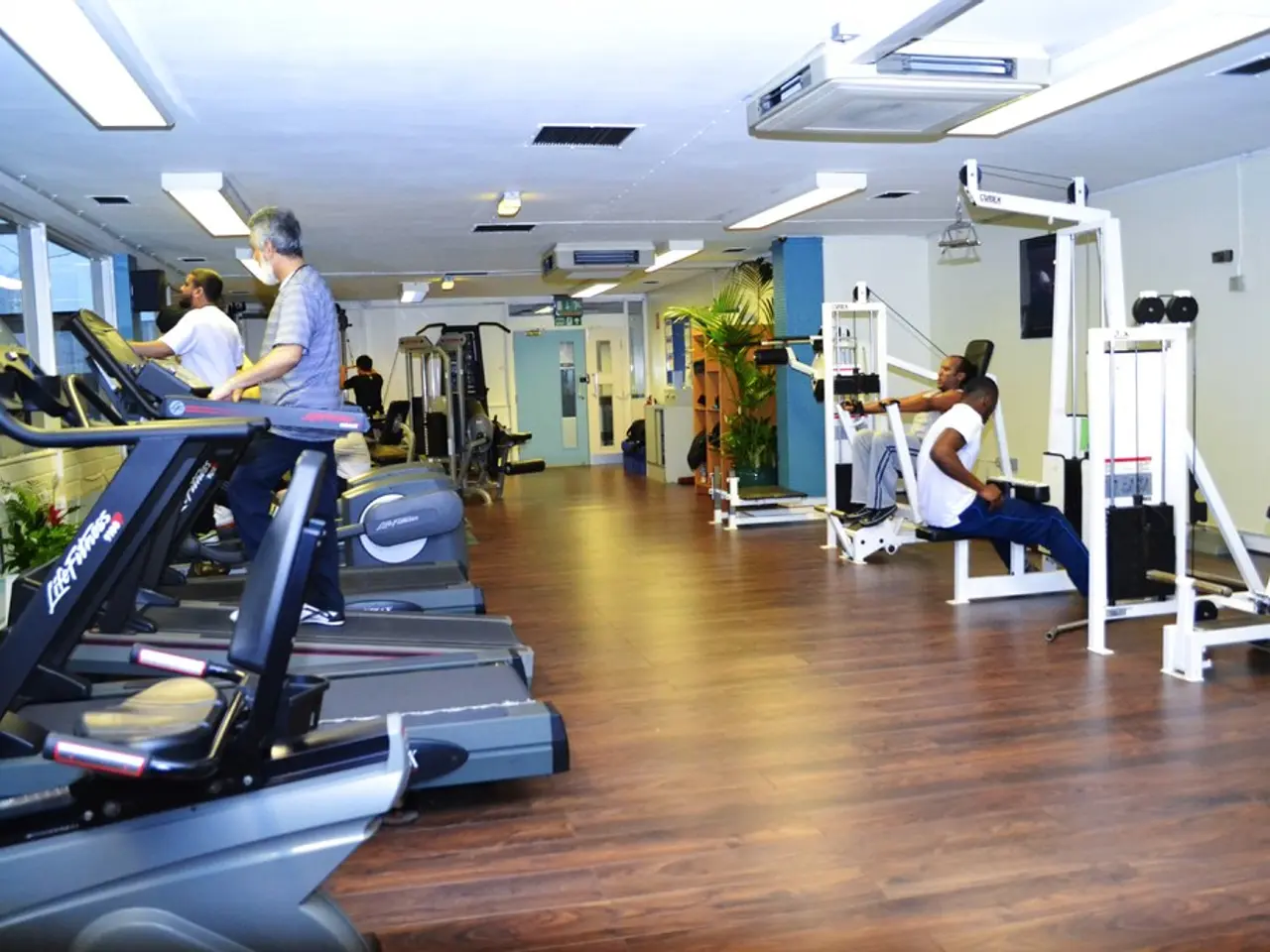Artificial intelligence-driven exoskeletons enable paralyzed individuals to walk once more, potentially becoming available in American households in the near future.
================================================================================
In a significant development for the field of robotics and rehabilitation technology, Wandercraft, a French robotics and AI company, has secured FDA clearance for its latest exoskeleton, Eve. This regulatory milestone marks the beginning of a new era for stroke rehabilitation and mobility assistance.
Eve, designed for personal use in home and real-world environments, is fully controlled by the user, unlike its predecessor, Atalante, which requires the assistance of a clinician. The self-balancing exoskeleton does not require crutches, making it a game-changer for those seeking independence and mobility.
The FDA clearance for stroke rehabilitation is a significant step forward for Wandercraft. The device is already in use by patients, indicating that it is commercially available for therapy and mobility assistance post-stroke. While specific details on insurance coverage or reimbursement strategies are not explicitly stated, FDA clearance typically facilitates efforts to secure reimbursement pathways. Wandercraft's ongoing engagement with patients and rehabilitation centers suggests they are likely pursuing commercial release broadly with the aim to establish reimbursement frameworks for qualifying patients in stroke rehabilitation programs.
One notable patient is French paraplegic tennis player Kevin Piette, who used a Wandercraft exoskeleton to carry the Olympic torch towards Paris ahead of the 2024 Games. Another inspiring story is that of Caroline Laubach, a 22-year-old from Pennsylvania. Laubach went into end-stage heart failure at age 18 and had a spinal stroke after a successful heart transplant, leaving her paralyzed from the waist down. Her life changed when she tried Wandercraft's Atalante exoskeleton during a therapy session in November 2024, and she recently walked inside the Wandercraft storefront on Park Avenue South. Laubach hopes to be among the first to take Eve home once FDA clearance is granted.
Wandercraft has spent more than a decade refining its control algorithms and AI systems with collaborators like Nvidia and AWS. The exoskeletons cater to individual weight, height, balance, and stride, with every patient moving differently. As the user shifts or moves, the system processes inputs in real-time to maintain balance and posture.
The company has also partnered with the Renault Group to streamline manufacturing and reduce costs. Wandercraft recently received Medicare coding for Atalante, meaning qualifying patients will be reimbursed. The company has tested its hardware with over 2,000 patients in hospitals and rehab centers, and it is currently used in more than 100 institutions across Europe and America, with access expanding.
Wandercraft's founder, Masselin, envisions the future of the technology lying in its adaptation to broader environments and building devices that respond to how people actually live. With Eve's FDA clearance and commercial availability, that future is one step closer. When Eve hits the market, potentially as soon as next year, it will be eligible for reimbursement up to $93,000.
[1] Wandercraft's press release: https://www.wandercraft.com/news/press-releases [2] Interviews with patients and rehabilitation centers: https://www.wandercraft.com/testimonials [3] Wandercraft's history and timeline: https://www.wandercraft.com/about [4] Wandercraft's FDA clearance for Atalante: https://www.fda.gov/medical-devices/pre-market-approval-pma/pma-device-database [5] Wandercraft's partnership with Renault: https://www.wandercraft.com/news/press-releases/2022/06/wandercraft-and-renault-group-announce-strategic-partnership-to-accelerate-the-development-of-exoskeletons
- The significance of Wandercraft's latest exoskeleton, Eve, extends beyond stroke rehabilitation, as it can potentially impact various medical-conditions that limit mobility.
- Embracing technology in healthcare, Wandercraft's exoskeletons, such as Eve, are designed to integrate seamlessly with health-and-wellness routines, including fitness-and-exercise regimens and therapies-and-treatments.
- Artificial Intelligence plays a crucial role in Wandercraft's exoskeletons, allowing them to adapt to individual user needs, balancing, and strides for optimal personal performance.
- In this era of technological advancements, Wandercraft's exoskeletons, like Eve, could significantly influence the world by promoting independence, mobility, and quality of life for many people coping with different medical-conditions.




